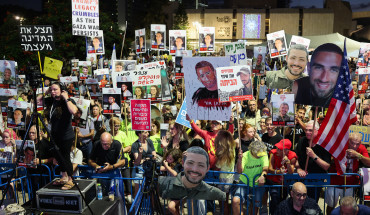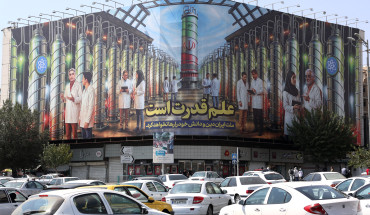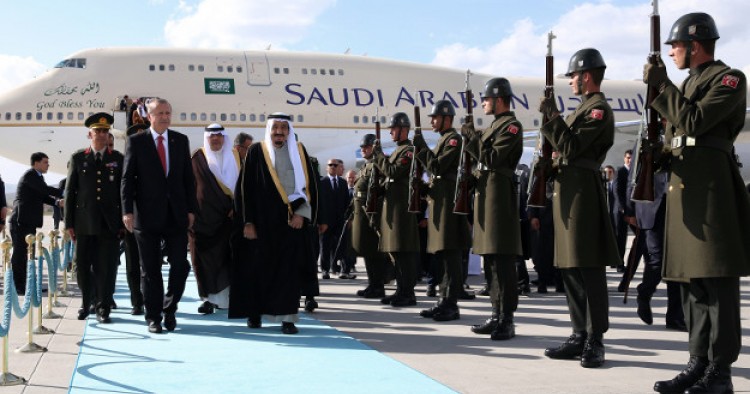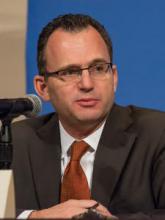In this week's Monday Briefing, MEI experts Randa Slim, Charles Schmitz, and Paul Salem provide analysis on recent and upcoming events including the next round of Syrian peace talks, the cease-fire in Yemen and the negotiations ahead, and Saudi King Salman's visits to Egypt and Turkey.
Round Two of Syrian Peace Talks
Randa Slim, Director of the Initiative for Track II Dialogues
The second round of Syrian peace talks on Wednesday will be the first serious test of the Syrian regime’s willingness to discuss issues that they have, until now, considered red lines. It will also be a test of Russia’s ability to get its ally in Damascus to enter into serious negotiations about President Bashar al-Assad’s future.
Assad last week referred to the concept of a transitional authority as “illogical and unconstitutional.” This means that the Syrian regime will stick to his demand that the first phase in a political process should be the formation of a unity government under Assad’s leadership. As the negotiations proceed in Geneva, the Syrian regime’s strategy is to create political and military faits accomplis to shape both the negotiations and the military balance in its favor.
While the Syrian regime can continue to draw out negotiations for the foreseeable future, the opposition’s High Negotiation Committee cannot afford to do so at the risk of further internal divisions. Without making even limited progress on critical issues, such as the powers of a transitional authority and Assad’s role in the transition, the opposition negotiators risk losing the support of rebel groups.
The pro-opposition international camp must soon decide how long they will continue to support the negotiation process in the face of the Syrian regime’s intransigence. Given the absence of a consensus inside that camp on their priorities in Syria, the default option is to do more of the same: prioritize the fight against the Islamic State through incremental escalation, while continuing to rely on Russia to help deliver progress at the negotiation table.
Tough Talks Ahead for Yemeni Factions
Charles Schmitz, MEI Scholar
As might have been expected, the cease-fire in Yemen commenced at midnight on Sunday with both sides accusing the other of violating the agreement. Yemen’s most populous governorate of Taiz seems to be the focus of the most intense fighting, which may well flare on and off in the weeks to come.
However, the general level of fighting across Yemen did decrease markedly on Sunday in anticipation of the cease-fire, and the agreement contains mechanisms at the level of the governorate to try to contain the inevitable outbreaks of violence.
While this cease-fire holds more promise, the coming talks in Kuwait this Friday face political challenges that appear impossibly difficult to resolve. Abu Rabbu Mansour Hadi’s side continually repeats that the basis of the talks is the U.N. Security Council Resolution 2216, which calls for the withdrawal of militias from the cities and the return of heavy weaponry to the military. But the only resemblance of a military in Yemen is the one loyal to Ali Abdullah Saleh, currently fighting alongside the Houthis. As such, Saleh seems to have won the war, at least in as much as obtaining his objective of regaining a seat at the negotiating table.
Seemingly in anticipation of this sort of political quagmire, Hadi unexpectedly appointed Ali Mohsen al-Ahmar, arch enemy of both the Houthi and Saleh, vice president, and fired his prime minister, Khaled Bahah. Bahah was replaced by Ahmed Obaid bin Daghr, who was Saleh’s second-in-command in Saleh’s People’s General Congress up until the Saudi air campaign, whereupon he switched sides and flew to Riyadh. Hadi and Riyadh seem to realize they have some long hard bargaining ahead of them.
Saudi King Consolidating Regional Clout
Paul Salem, Vice President for Policy and Research
After a five-day visit to Egypt, King Salman has arrived for an equally long strategic visit to Turkey. This comes a few weeks after the kingdom hosted the Northern Thunder military exercises, with forces from 20 Sunni-majority countries including Egypt and Pakistan; several months after announcing the Islamic Alliance Against Terrorism, which currently has 39 members; and one year after the Saudi-led intervention in Yemen with eight Arab coalition partners.
Riyadh is taking seriously its assessment that the United States has retreated from the region and that Saudi itself has to take the lead in containing and countering Iran. While Iran can boast an alliance running through Baghdad, Damascus and Beirut, Saudi Arabia is trying to consolidate an alliance that runs from all of North Africa, through to Turkey, Jordan, the G.C.C., and Pakistan, Indonesia and Malaysia. The king’s visits to Egypt and Turkey are integral to this design.
In Egypt, Salman and President Abdel Fattah el-Sisi announced an $18 billion investment fund, the establishment of a land bridge between the two countries, and the return of two islands in the Red Sea to Saudi control. The details of the agreements are significant, but perhaps not as important as the broader picture of Riyadh consolidating its regional clout. The visit dispels, or overcomes, questions regarding the strength of the Saudi-Egyptian relationship over the past year as the two countries have not exactly seen eye-to-eye on Yemen, Syria, and some of Egypt’s domestic policies.
From Cairo, the king has gone to Ankara, where he hopes to strengthen economic and strategic ties with another major regional player. The king and President Recep Tayyip Erdogan will both attend the Organization of Islamic Cooperation summit in Istanbul. The king is also expected to work on repairing relations between Riyadh’s two largest regional allies, Egypt and Turkey, which have been broken since 2013.
The Middle East Institute (MEI) is an independent, non-partisan, non-for-profit, educational organization. It does not engage in advocacy and its scholars’ opinions are their own. MEI welcomes financial donations, but retains sole editorial control over its work and its publications reflect only the authors’ views. For a listing of MEI donors, please click here.
















